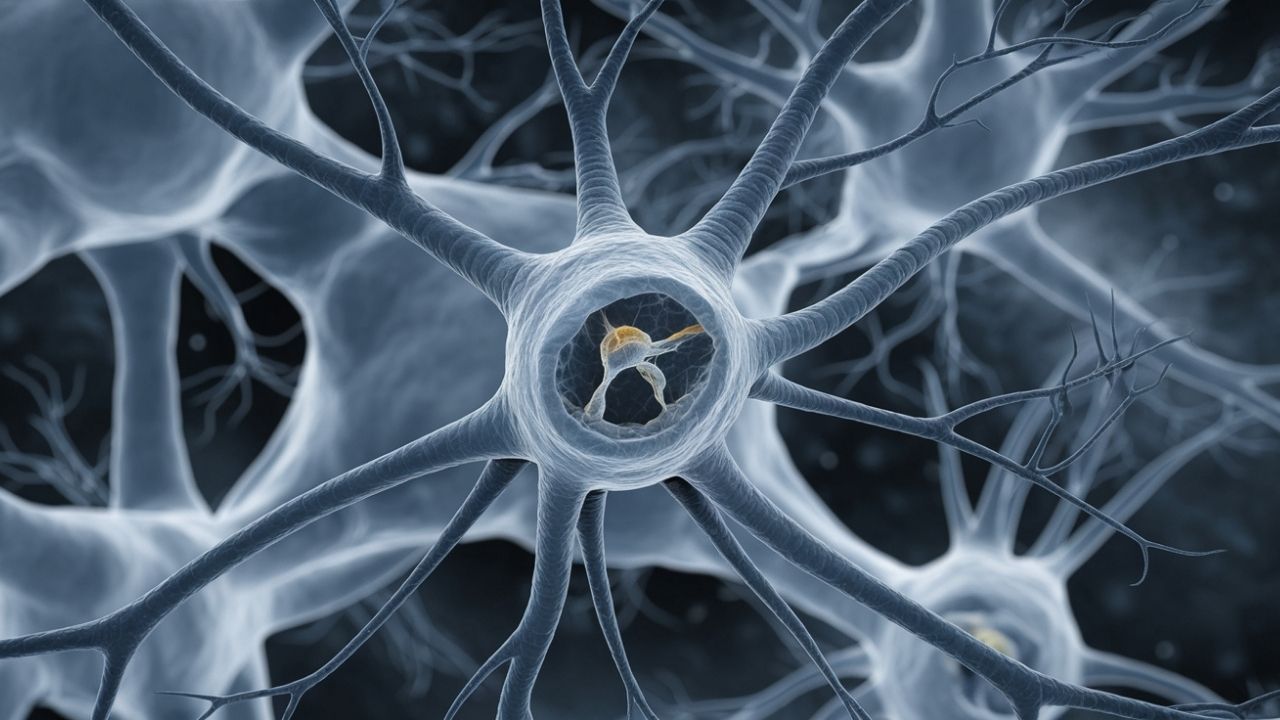
Nephrosis Neuronal Dysmigration might sound like a mouthful, but understanding it can be crucial for those affected. This rare condition involves both kidney problems and brain development issues. Nephrosis refers to kidney damage, while neuronal dysmigration means neurons in the brain didn't move to their correct positions during development. This combination can lead to a variety of symptoms, including developmental delays, seizures, and kidney dysfunction. Knowing the facts about this condition can help in managing it better. Here, we’ll break down 25 essential facts about Nephrosis Neuronal Dysmigration, making it easier to grasp what this condition entails and how it impacts lives.
Key Takeaways:
- Nephrosis Neuronal Dysmigration is a rare genetic disorder affecting the kidneys and brain, causing symptoms like swelling, developmental delays, and seizures. Treatment focuses on managing symptoms and improving quality of life.
- Genetic mutations play a key role in Nephrosis Neuronal Dysmigration, with ongoing research aiming to better understand the condition and develop targeted therapies. Families can benefit from genetic counseling and prenatal testing for early intervention planning.
What is Nephrosis Neuronal Dysmigration?
Nephrosis Neuronal Dysmigration is a rare genetic disorder that affects both the kidneys and the brain. This condition involves abnormal migration of neurons during brain development and nephrotic syndrome, a kidney disorder causing excessive protein loss in urine. Here are some intriguing facts about this complex condition.
-
Nephrosis Neuronal Dysmigration is often diagnosed in infancy or early childhood due to its severe symptoms.
-
Nephrotic syndrome in this condition leads to swelling, especially in the face and legs, due to fluid retention.
-
Genetic mutations are the primary cause, specifically in genes responsible for kidney and brain development.
-
Brain abnormalities include issues like lissencephaly, where the brain surface appears smooth due to improper neuron migration.
-
Developmental delays are common, affecting motor skills, speech, and cognitive abilities.
Symptoms and Diagnosis
Understanding the symptoms and how doctors diagnose Nephrosis Neuronal Dysmigration can help in early detection and management.
-
Proteinuria is a hallmark symptom, where large amounts of protein are found in the urine.
-
Hypoalbuminemia occurs when blood protein levels drop due to protein loss in urine.
-
Edema or swelling is often the first noticeable symptom, caused by fluid buildup in tissues.
-
Seizures may occur due to brain abnormalities, requiring careful monitoring and treatment.
-
MRI scans are crucial for diagnosing brain abnormalities associated with this condition.
Treatment and Management
While there is no cure, various treatments can help manage symptoms and improve quality of life.
-
Corticosteroids are often prescribed to reduce protein loss in urine.
-
Diuretics help manage edema by promoting fluid excretion.
-
Anticonvulsants are used to control seizures and prevent further neurological damage.
-
Physical therapy can aid in improving motor skills and overall physical development.
-
Speech therapy is beneficial for addressing communication difficulties.
Genetic Aspects
The genetic basis of Nephrosis Neuronal Dysmigration is complex and involves multiple genes.
-
Mutations in the PAX2 gene are commonly associated with this condition.
-
Autosomal recessive inheritance means both parents must carry the mutated gene for a child to be affected.
-
Genetic counseling is recommended for families with a history of the disorder.
-
Prenatal testing can identify the condition before birth, allowing for early intervention planning.
-
Research is ongoing to better understand the genetic mechanisms and develop targeted therapies.
Living with Nephrosis Neuronal Dysmigration
Living with this condition requires a multidisciplinary approach and support from various healthcare professionals.
-
Regular monitoring by a nephrologist is essential to manage kidney function and prevent complications.
-
Neurologists play a key role in managing seizures and other neurological symptoms.
-
Dietary modifications may be necessary to manage protein levels and overall health.
-
Support groups can provide emotional and practical support for families dealing with the condition.
-
Educational plans tailored to the child's needs can help maximize their learning potential and development.
Final Thoughts on Nephrosis Neuronal Dysmigration
Nephrosis Neuronal Dysmigration is a rare condition that affects both the kidneys and brain. Understanding its complexities can help in managing symptoms and improving quality of life. Early diagnosis and treatment are crucial. Genetic factors play a significant role, so family history should be considered. While there's no cure, treatments focus on symptom management and improving daily functioning. Research is ongoing, offering hope for better treatments in the future. Awareness and education about this condition can lead to better support for those affected. If you or someone you know is dealing with Nephrosis Neuronal Dysmigration, consult healthcare professionals for the best course of action. Stay informed and proactive in seeking care. Knowledge is power when it comes to managing rare diseases.
Frequently Asked Questions
Was this page helpful?
Our commitment to delivering trustworthy and engaging content is at the heart of what we do. Each fact on our site is contributed by real users like you, bringing a wealth of diverse insights and information. To ensure the highest standards of accuracy and reliability, our dedicated editors meticulously review each submission. This process guarantees that the facts we share are not only fascinating but also credible. Trust in our commitment to quality and authenticity as you explore and learn with us.
